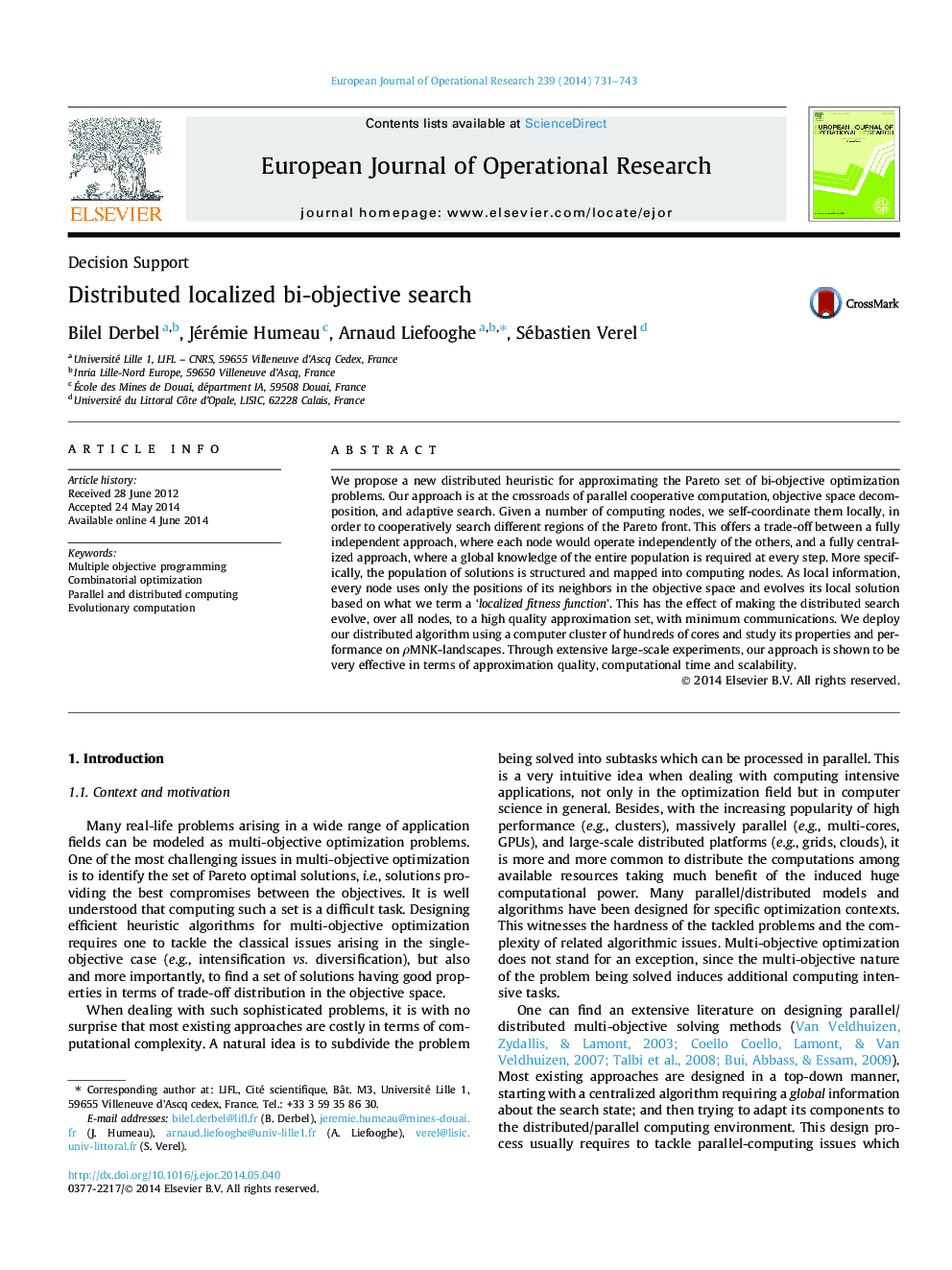| Article ID | Journal | Published Year | Pages | File Type |
|---|---|---|---|---|
| 476615 | European Journal of Operational Research | 2014 | 13 Pages |
•A new distributed heuristic approach is designed for approximating the Pareto set of bi-objective optimization problems (DLBS).•DLBS is based on parallel cooperative computation, objective space decomposition, and adaptive search.•DLBS is studied, experimented, and deployed on a cluster of hundreds of core.•The DLBS efficiency is measured in terms of approximation quality, computational time and scalability.
We propose a new distributed heuristic for approximating the Pareto set of bi-objective optimization problems. Our approach is at the crossroads of parallel cooperative computation, objective space decomposition, and adaptive search. Given a number of computing nodes, we self-coordinate them locally, in order to cooperatively search different regions of the Pareto front. This offers a trade-off between a fully independent approach, where each node would operate independently of the others, and a fully centralized approach, where a global knowledge of the entire population is required at every step. More specifically, the population of solutions is structured and mapped into computing nodes. As local information, every node uses only the positions of its neighbors in the objective space and evolves its local solution based on what we term a ‘localized fitness function ’. This has the effect of making the distributed search evolve, over all nodes, to a high quality approximation set, with minimum communications. We deploy our distributed algorithm using a computer cluster of hundreds of cores and study its properties and performance on ρρMNK-landscapes. Through extensive large-scale experiments, our approach is shown to be very effective in terms of approximation quality, computational time and scalability.
